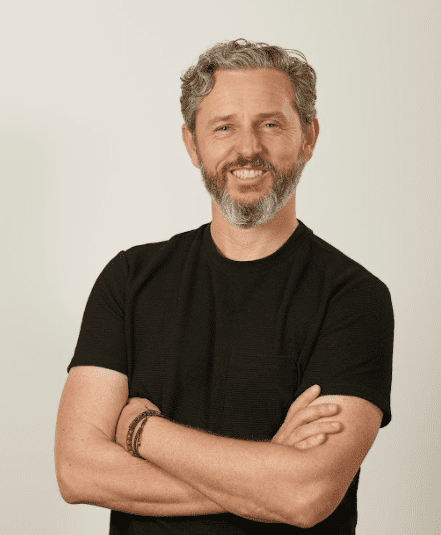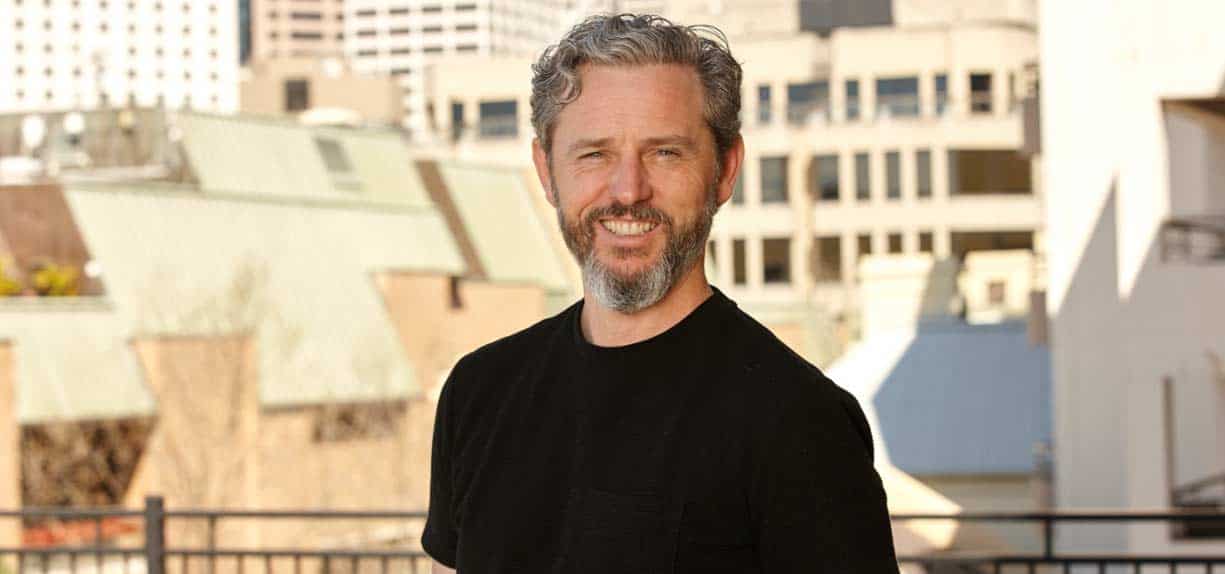Pictured: David Walsh, founder and CEO of CIM
David Walsh comes from Templemore in Co. Tipperary and moved to Sydney with his wife and two children in 2009. He was inspired to create CIM because of the ‘black hole’ he observed in the way data was being used within buildings. CIM transforms building operations by combining building analytics, machine learning and technical engineering support into real-time, data-driven insights.
Prior to moving to Australia, David worked in Ireland and Germany as a systems engineer and consultant for SAP and Intel, and as a director of technical services for a design, building and property company. He has a Bachelor of Computer Science from Griffith College in Dublin.
What are your main priorities and goals in your role?
Within my role, I have three main priorities and goals that include team culture, business strategy and capital management. As the leader of a high-performing team responsible for these goals, I can only achieve them if I’m able to operate as close to my peak as possible. For this reason, I’m passionate about the benefits of good daily habits such as mindfulness and positive routines.
What are your biggest challenges as CEO?
There are probably three main challenges that I find the most important from a personal and professional perspective. The first one is that of time management and the need to be present for everyone. As the founder, you need to wear all the different hats of all the other business functions so maintaining that clarity of mind and energy requires a lot of practice.
The following challenges are more business-critical. Firstly attracting, fostering and retaining talent is crucial to us going forward. As we continue to grow, it is essential that we find the best people for the role; this means increasing the diversity of our teams. Secondly, as a business and industry, we need to bridge the gap between digital and environmental goals. If efficiency is the new income, data is the vehicle that gets us there. The challenge then becomes a matter of advocating for the benefits of our technology, and explaining why there is such a significant opportunity for people and industry in this space.
How do you keep your team/staff motivated?
Our People & Culture vision is to be a best-in-class employer, providing our team with the motivation, purpose and training to succeed in their role. Our goal is to build a team of diverse experts by supporting them with their personal and professional development, which includes access to mentoring and growth opportunities. To achieve this, we have invested heavily in creating and promoting an empowering culture reflected through our six core values. They are curiosity, accountability, collaboration, humility, trust and wellbeing.
To reflect our values and remain respectful of diverse cultures, we offer several team building activities that help us create great relationships. As I am based in Sydney right now, it makes it possible for us to have a team lunch together every Thursday. We offer fitness and training sessions once a week. There are weekly wrap-up sessions. We also have an employee assistance programme that provides each team member with access to health and well-being support.
What are the challenges facing the industry going forward?
There are two main challenges that I want to highlight. Firstly, we need to do more to promote gender diversity and inclusion throughout our workforce so that we are promoting equality and providing opportunities for all.
Secondly, as the world begins transitioning towards a low-carbon economy where Environmental, Social and Governance (ESG) and sustainability targets are industry standard, we need a fundamental shift in the way people and businesses operate. Our clients will only see the true benefits of our technology if the government supports innovative companies through policy.
We need to do more to promote gender diversity and inclusion throughout our workforce so that we are promoting equality and providing opportunities for all
What new trends are emerging in your industry?
In the wake of the COVID-19 pandemic, there’s been a profound acceleration in the digital transformation of business and industry. As we were all forced to pivot towards greater flexibility, new technologies deliver long-term value for stakeholders. This upswing in digital transformation has seen an incredible rise in the shift towards ESG (Environmental, Social, and Governance) targets, which has placed a collective responsibility on us to champion people and the planet as a priority.
To me, bridging both the digital and environmental goals of buildings to perform at their peak is the next biggest frontier in our industry. According to the World Economic Forum, the companies that link their digital and environmental goals are 2.5 times more likely to be among tomorrow’s strongest business performers. For CIM, our opportunity is to be the ones that best advocate, educate and clarify how to combine these goals so that stakeholders can achieve optimal building performance and portfolio efficiency.
Are there any major changes you would like to see in your sector?
There are two fundamental changes that I would like to see in our sector. Firstly, diversity within the engineering industry continues to lag when it comes to gender. We are continually doing ourselves a disservice by not bringing the best minds into our field. Secondly, there needs to be more government support to incentivise the inception of new technologies. There are opportunities to stimulate economic returns and environmental sustainability through funding technological innovation through grants for capital upgrades or subsidies for hiring skilled workers.
As an employer are you finding any skill gaps in the market?
Yes, we are. We’ve already spoken about a lack of female representation within the industry but there is also a shortage of software engineers. Because we are in the midst of an emerging industry, it’s hard to find talent that ticks all the boxes, including experience, skillset, and formal training, all the while matching salary expectations in a hot market. It is even harder to find software engineers who are so passionate about their product that they go above and beyond to find solutions!
How did your strategy develop?
After years of working in the industry, I noticed how data ‘black holes’ and unnecessary wastage were causing inefficiencies within buildings. When I founded CIM back in 2013, I did so because I was passionate about addressing these issues and helping data-rich companies, but information poor, find or fix the root cause of wastage. Our first strategy was mainly built off the back of that vision and my deep domain knowledge and experience of data science and building operations across the software, energy, property and sustainability sectors.
Thankfully, as the company has grown, so too has the strategy. I believe in leadership where everyone should have their voice heard, so today’s approach resulted in a far more collaborative effort, and we see some fantastic results. By engaging with the internal team, I’ve tried to bring them on the journey from the outset to ensure they feel involved, they understand it and agree to champion it.

David Walsh, founder and CEO of CIM.
How will Brexit affect you, or have you started to feel the effects already?
In reality, a building doesn’t behave any differently; however, I believe Brexit will focus decision making efforts on operating efficiencies more intensely, partly due to the increased cost of goods subjected to trading and import tariffs. It has also added another level of bureaucracy through manually intensive admin such as customs paperwork and work permits, resulting in firms needing to increase headcount to cover new mandates.
It’s hard to know the outcomes of these added stresses however, it could bode well for companies such as ours, whose purpose it is to increase operational efficiencies through proven tech solutions such as PEAK. Time will tell though!
How do you define success and what drives you to succeed?
Business and life is an infinite game. The way I want to measure success is through the strength of the relationships around me. As someone who values people and culture as the most critical element in the business’s success, I see this as the most effective way of defining success.
For example, if you earn your team’s trust, you can earn their ‘heart and their hand’. If you can do this, it will allow you to grow together and foster an empowered and collaborative culture that aligns with its values. This determination to succeed will then almost certainly manifest itself into added value for our customers because our people are willing to go above and beyond for them.
What’s the best advice you’ve been given, or would give, in business?
Without a doubt, it would have to be to, “Put your people first.” The premise of this advice was simple; if you put them first, then they will do the right thing by the clients and the business and this ultimately lays the foundations of success. This trusting relationship can then permeate across the value chain from people to customers to shareholders, creating a more sustainable and profitable business over the long term.
What have been your highlights in business over the past year?
While the past year has certainly had its challenges, the resilience of our team has been the highlight for me. They demonstrated an absolute commitment to innovation from the onset of the pandemic that was unwavering throughout. Their proactiveness has helped to create a tailwind of momentum for us as we emerge from the pandemic.
This last year, we’ve received some magnificent feedback from our customers as well as a spike in our engagement metrics. We’ve also seen an uptick in people using our platform to collaborate to resolve significant issues.
What’s next for your company?
I’m excited by what’s next for us. We are currently looking to raise capital so that we can continue to expand CIM into new geographies, including America and South-East Asia. We are also looking to grow our presence within the EMEA region which includes investing into new offices.
In terms of the product, our pursuit of innovation will continue. We’re keen to deepen our in-house expertise in Artificial Intelligence and Machine Learning as we have already seen its potential to revolutionise the whole sector.
Where do you want your business/brand to be this time next year?
Looking ahead, I would love to see us having doubled our revenue and having opened new offices in other regions around the world. I think we have got the strategies to achieve that; however, we can only do this if we continue to improve what has worked for us to get to this point, including maintaining a less than 1% churn rate.
How is COVID-19 currently impacting your business, and what effects, if any, do you envisage during 2021 and beyond?
COVID-19 has shone the spotlight on the necessity to do more with what we already have. I believe this is part of the reason why we have seen so many tech businesses thrive, especially those who champion digital and environmental transformation to improve operational efficiencies. Because we were able to pivot quickly during the pandemic, we are probably one of the few good stories emerging. Throughout COVID, we worked closely with our customers to embed modern building management using our PEAK platform from a remote location which many will see as a template for future success. This includes optimising how building stakeholders use building analytics to improve the performance of their assets.



